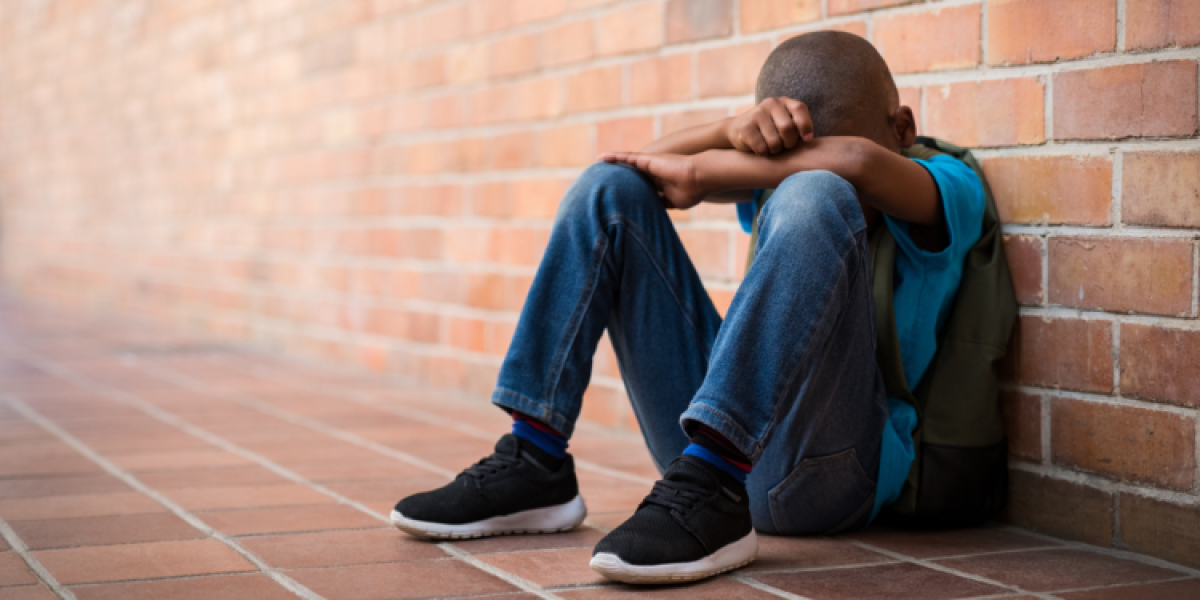
Moving to a new country can be an exciting adventure for a child. But this transition often comes with a unique set of challenges that will frame your child's day-to-day life. Expatriate children often have to face a world that is vastly different from their own. On top of the complexities of growing up, they will need to adapt to new social situations.
According to the National Center for Educational Statistics, "one out of every five students report being bullied". And an expat child in a new school, surrounded by new people and different social norms, may be at an even higher risk.
Understanding bullying in expat context
Bullying is, unfortunately, a universal problem. With that said, however, some children may end up being at a higher risk of being bullied compared to others.
Gelya Bend, educator, phycologist and art therapist based in Hong Kong, explains: "The children who've got leadership skills do not need to do anything to become popular. A bully usually wants to establish some sort of power or authority, and in most cases it's driven by seeking attention from the peers. Some children are trying to get their parents' attention by causing trouble at school. At the same time, Ironically, the bullied children in most cases, are standing out of the crowd and are easily noticed. They might be different in how they look, talk, and dress or their social or cultural status could differ. They draw more attention and sometimes become a target for jokes or pranks."
Challenges for expat children abroad
One of the most immediate challenges an expat child would encounter abroad would be the language barrier. Not being fluent in the local language can make basic communication frustrating – not just when it comes to social interactions but also when following lessons at school or instructions in public places. This can be tough for an adult – but imagine being a child surrounded by all things new and unable to express yourself or understand others.
Cultural differences complicate matters further. Every country and culture comes with its own set of unwritten rules. This could be about how people dress, what is considered appropriate, how to express your emotions, and lots more. For a young child, trying to navigate such differences in a new environment can be overwhelming. And then, their natural reactions and responses to certain situations may be perceived as strange or even inappropriate by their peers.
Many expat children will be dealing with feelings of isolation or being different. And it is "being different" that often makes social interactions very difficult for children living abroad. Even something as little as looking different from their classmates can make a child a target for bullying or isolation. The sense that they don't quite 'fit in' can slowly eat away at their self-esteem and make them unwilling to engage in social activities. Over time, this isolation can become more profound, affecting their emotional and mental health.
How to recognize that your expat child is being bullied
Bullying can often be an insidious force in a child's life. And its signs, especially in the beginning stages, can be quite subtle. With that said, there are several things parents should be on the lookout for:
Changes in habits: If a once outgoing and energetic child suddenly withdraws from social interactions and becomes shy and uncertain, this could be a red flag of something going on in the background.
"Pay attention to their mood change. If your cheerful and talkative child becomes grumpy and quiet for no obvious reasons, it's a good time to ask about school. If they refuse to talk or try to avoid to answer, it could be a good idea to contact the classroom teacher to make sure the things are going well. Some children want to sort it out themselves or feel humiliated to talk about it even to their parents. Checking with the teacher might help to understand the situation better", says Gelya Bend, psychologist.
Lower grades: If you notice that your child, who was once diligent with schoolwork, may start to seem disinterested in their studies, careless with homework, and struggling with concentration, this may be another sign of bullying.
Physical symptoms: Your child may start complaining of headaches, stomachaches, or other unexplained ailments. These may be used as an excuse to not go to school or facing a bully. Or, these could be psychosomatic symptoms signaling emotional stress.
Losing money and personal items: If your child suddenly starts losing toys, clothes, or money, this could be another indicator of bullying.
Unexplained injuries: Finally, if bullying gets physical, you may notice that your child is coming home with repeated and unexplained injuries like bruises and scratches. They will most likely be reluctant to explain the injuries and try to change the topic.
How to support an expat child who is being bullied—or is likely to be bullied
Knowing or even suspecting that your child is bullied will be difficult for any parent. What can help is being prepared. Having an actionable strategy in place will let parents feel more in control and allow them to offer to their children right away.
Psychologist and educator Gelya Bend explains that there are a number of things that parents can do to prevent their children from experiencing bullying and managing bullying instances if they have already occurred.
What parents should consider
At school: "Try to learn about the school culture and the class environment. How different your child will be from the rest of the group? Do your expectations and values align with the school policy? Will your child and you feel comfortable coming to this school? Does the school management seem to be approachable?"
After school: "Get to know parents and try to have play dates with the child's classmates so they have a chance to know each other better and make new friends. Being different might be tough, but when people (adults or kids) look closer, they realize that there are more similarities than differences. Joining a parent group could be a good chance to learn about other families and let them know you better."
At home: "Children are more likely to share about what happens at school if they are listened to. Make sure you have enough time and space to listen to what the child has to say and try not to diminish their feelings or their problem. Their life experience isn't big; many things are new to them, and they're learning to deal with frustrations and different social situations. It's important that your child feels safe to share with you and ask you for help when needed."
What if your child is a bully?
"If your child happens to be a bully, go through your daily schedule and check how much of your time your child gets. Do you spend enough quality time together? Do you talk to them about your day and ask about theirs? Another reason for aggressive behavior could be neglected child's needs and home violence (including verbal violence and passive-aggressive communication style). In some cases, professional help is needed to look at the family patterns and help them cope with this problem."
When to seek professional help
"In some cases, when a child is being bullied for a long period of time, their behavior and personality traits might change. If they become anxious, avoid social interactions, experience nightmares, refuse to go to school, become aggressive towards siblings or pets, and seem different from what they used to be, it's time to consider seeking professional help".
Professional help may take many forms, and it mostly depends on where you are based. Some countries have dedicated anti-bullying organizations that offer resources, hotlines, and advice for parents and children dealing with bullying. For example, if you are in the USA, you can visit StopBullying.gov (USA), and in the UK, Kidscape.
Some countries have youth centers or non-governmental organizations (NGOs) that focus on children's rights and welfare. Here, you will be able to get your child counseling and other forms of support for your child.
Bullying is a complex problem. Helping your child through it can be a really challenging undertaking, especially if both you and your child need to navigate a new and foreign environment. This is why it's very important not to shy away from help in any form it may come: community support, expat network, school, other parents, and more.



















